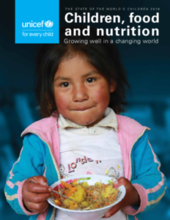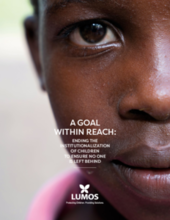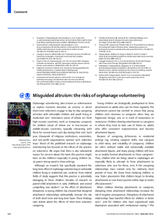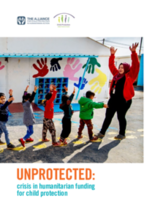Displaying 481 - 490 of 1343
This conceptual chapter from the book Education in Out-of-Home Care argues that efforts to improve educational outcomes for care experienced young people need rethinking.
This review aimed to compare child safety assessment instruments, which are used by child welfare professionals to determine whether a child is in immediate danger, and subsequently, whether immediate action is required to stop or prevent serious harm to the child.
This edition of The State of the World’s Children report examines children, food and nutrition. It seeks to deepen understanding around the causes and consequences of children’s malnutrition in all its forms and to highlight how governments, business, families and other stakeholders can best respond.
This book provides training modules for rights-based integrated child protection service delivery systems at the secondary and tertiary prevention levels.
This report from Lumos defines the global problem of institutionalization of children - including the factors that drive it and the harmful impacts it has on children's physical and cognitive development - and proposes global solutions in line with the Sustainable Development Goals.
This paper explores practice examples relating to young people's transitions from care to adulthood.
This special issue of the Child & Family Social Work journal focuses on teenagers in foster care. Articles and papers in this issue include:
This editorial summarises a range of research in this special issue covering parenting styles, transitions out of care, child sexual exploitation, and the needs of LGBTQ and separated teenagers.
While much of the published research on orphanage volunteering has focused on the effects of the practice on volunteers, the authors of this comment paper from the Lancet argue that there is also substantial reason for concern about the harm this practice might have on the children—especially in young children (ie, ≤5 years)—being raised in these settings.
This desk review provides a picture of funding for the child protection sector over the period 2010–2018. The authors highlight funding trends, main donors and recipients, and examine funding levels in comparison to financial requirements in a selection of countries in 2018.




